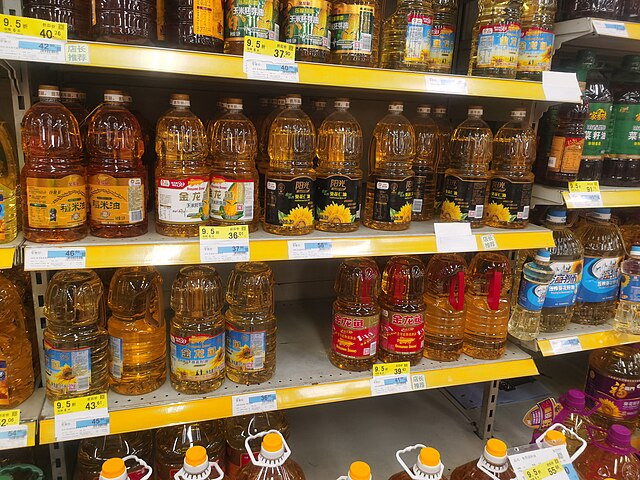China is reeling from a food safety scandal that has ignited widespread public outrage and scrutiny just days before a high-level Chinese Communist Party (CCP) meeting aimed at bolstering confidence in the economy. The controversy centers on the use of unwashed fuel tankers to transport cooking oil, raising serious concerns about food contamination and public health.
Last week, the state-run newspaper Beijing News published an in-depth exposé revealing the "open secret" of fuel tankers being used to transport cooking oil without proper cleaning or disinfection. The report detailed the journey of a trucker who drove a tanker of coal-derived fuel from Ningxia in western China to Qinhuangdao in Hebei province. After delivering the fuel, the trucker was directed to load nearly 32 tons of soybean oil into the same tanker without cleaning it.
Several other tankers featured in the article made similar journeys, implicating major Chinese companies, including the state-owned Sinograin and the private conglomerate Hopefull Grain and Oil Group. Both companies have launched investigations in response to the allegations.
The office of the food safety commission under China's State Council announced it was investigating the claims, stating that individuals found violating the law would face severe punishment. Chinese regulations mandate that different tankers should be used for transporting cooking oil and fuel, which is derived from coal and potentially poisonous.
The Beijing News report highlighted the lack of inspections or cursory checks at best. In one case, a piece of white paper was taped over the writing on a tanker indicating it was designated for fuel. The report raised alarms about the potential destinations of the contaminated cooking oil, suggesting it could have ended up in packaging facilities of well-known household brands, and possibly even in small bottles for foreign sales.
This revelation has caused widespread outrage in China, where food safety concerns are deeply rooted following several high-profile scandals. In 2008, six babies died and 300,000 were sickened by contaminated baby formula. In 2013, more than 16,000 dead pigs were found in the Huangpu River, which supplies Shanghai with drinking water. Last year, a rat's head was found in a school canteen meal in Jiangxi, initially claimed to be duck meat by the school.
The hashtag #edibleoil had garnered over 16 million views on Weibo, China's equivalent of Twitter, by Thursday. Many commenters praised the role of journalists in exposing the scandal. "It's been a long time since I've seen investigative journalism like this, kudos to the media," wrote one user.
However, some analysts questioned the timing of the publication by Beijing News, a CCP-backed outlet, so close to the upcoming third plenum, one of China's most significant political gatherings. Investigations into consumer and public health issues have become less common in Chinese media over the past decade, with the CCP maintaining strict control over what information can be published.
Other hashtags related to the incident, particularly those naming specific companies, appear to have been censored on Weibo. Shares in Jinlongyu's parent company fell by more than 8% amid concerns that its oil could be tainted. The company insisted its trucks met national requirements.
In a similar vein, the Chinese government has pledged to investigate the allegations rigorously. State broadcaster CCTV promised severe punishment for any companies and individuals involved in wrongdoing and vowed to publish the findings of their investigation promptly.
U.S. Secretary of Energy Jennifer M. Granholm emphasized the importance of addressing these issues for maintaining public trust. "There is nothing harder to a manufacturing community than to lose jobs to foreign competition and a changing industry," she said.
The public's response to the scandal underscores the deep-seated anxiety over food safety in China. "Food safety is the most important issue," read a comment liked more than 8,000 times on Weibo. Another user remarked, "As an ordinary person, surviving in this world itself is an amazing thing already."






